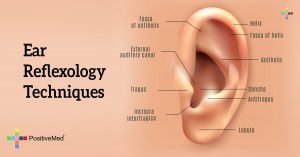
In recent years, concerns have emerged about a potential link between certain pet foods and a serious heart condition called dilated cardiomyopathy (DCM) in dogs. The Food and Drug Administration (FDA) has been investigating this issue since 2018, and reports continue to surface regarding dogs developing DCM due to their diets. Here’s what you need to know about this ongoing investigation and its implications:
The Nature of DCM:
Dilated cardiomyopathy (DCM) is a heart disease in which the heart enlarges, leading to weakened pumping ability. Certain large dog breeds, like golden retrievers and Great Danes, are more prone to developing DCM.
The FDA’s Investigation:
The FDA’s investigation began in 2018 when a possible connection was suggested between grain-free pet foods and DCM. Since then, reports of dogs and a smaller number of cats developing diet-related DCM have continued to accumulate. As of the most recent data, there have been 1,382 reported cases of diet-related DCM in dogs and cats.
Ingredients Under Scrutiny:
Specific ingredients found in some pet foods, including high levels of peas, lentils, and potatoes, have been associated with the development of DCM. In 2019, the FDA identified 16 brands of dog food linked to this heart condition. However, the FDA did not advise owners to stop feeding these foods to their pets.
Research Findings:
Research has pointed towards high levels of peas as a potential contributor to DCM. Canadian scientists conducted a study on adult beagle dogs and observed “DCM-like changes” in dogs that were fed a diet high in peas for 28 days. However, the exact mechanism through which these ingredients affect pets’ hearts is not yet fully understood.
Symptoms of DCM:
Dogs typically do not show signs of DCM until they are in heart failure. Symptoms to watch for include decreased activity, tiredness, lethargy, coughing, shortness of breath, and decreased appetite.
Precautions and Recommendations:
- Avoid High-Risk Ingredients: Pet owners are advised to steer clear of pet foods that list peas, lentils, chickpeas, and potatoes or sweet potatoes within their top 10 ingredients.
- Consult a Veterinarian: If you suspect that your pet might be affected by DCM, consult a veterinarian. Blood tests can measure levels of a protein called BNP, which can indicate heart muscle damage.
- Monitor for Symptoms: Be vigilant about observing any symptoms of heart issues in your pet. Early detection and intervention can make a significant difference in treatment outcomes.
- Consider Traditional Formulations: While millions of pets eat non-traditional diets without developing DCM, it’s recommended to opt for traditional pet food formulations to reduce the risk.
While the FDA investigation has shed light on the potential link between certain diets and DCM in pets, the full extent of the issue is still being explored. Pet owners are encouraged to prioritize their pets’ well-being by making informed dietary choices and seeking veterinary advice when needed.





